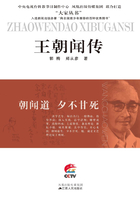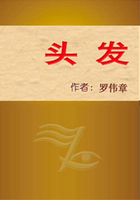1797
The royalists of the interior-Bonaparte's intention of marching on Paris with 25,000 men-His animosity against the emigrants and the Clichy Club-His choice between the two parties of the Directory
Augereau's order of the day against the word 'Monsieur'-Bonaparte wishes to be made one of the five Directors-He supports the majority of the Directory-La Vallette, Augereau, and Bernadotte sent to Paris-Interesting correspondence relative to the 18th Fructidor.
Bonaparte had long observed the struggle which was going on between the partisans of royalty and the Republic. He was told that royalism was everywhere on the increase. All the generals who returned from Paris to the army complained of the spirit of reaction they had noticed. Bonaparte was constantly urged by his private correspondents to take one side or the other, or to act for himself. He was irritated by the audacity of the enemies of the Republic, and he saw plainly that the majority of the councils had an evident ill-will towards him. The orators of the Club of Clichy missed no opportunity of wounding his self-love in speeches and pamphlets. They spared no insults, disparaged his success, and bitterly censured his conduct in Italy, particularly with respect to Venice. Thus his services were recompensed by hatred or ingratitude. About this time he received a pamphlet, which referred to the judgments pronounced upon him by the German journals, and more particularly by the Spectator of the North, which he always made me translate.
Bonaparte was touched to the quick by the comparison make between him and Moreau, and by the wish to represent him as foolhardy ("savants sous Moreau, fougueuse sous Buonaparte"). In the term of "brigands," applied to the generals who fought in La Vendée, he thought he recognized the hand of the party he was about to attack and overthrow. He was tired of the way in which Moreau's system of war was called "savants." But what grieved him still more was to see sitting in the councils of the nation Frenchmen who were detractors and enemies of the national glory.
He urged the Directory to arrest the emigrants, to destroy the influence of foreigners, to recall the armies, to suppress the journals sold to England, such as the 'Quotidienne', the 'Memorial', and the 'The', which he accused of being more sanguinary than Marat ever was. In case of there being no means of putting a stop to assassinations and the influence of Louis XVIII., he offered to resign.
His resolution of passing the Alps with 25,000 men and marching by Lyons and Paris was known in the capital, and discussions arose respecting the consequences of this passage of another Rubicon. On the 17th of August 1797 Carnot wrote to him: "People attribute to you a thousand absurd projects. They cannot believe that a man who has performed so many great exploits can be content to live as a private citizen." This observation applied to Bonaparte's reiterated request to be permitted to retire from the service on account of the state of his health, which, he said, disabled him from mounting his horse, and to the need which he constantly urged of having two years' rest.
The General-in-Chief was justly of opinion that the tardiness of the negotiations and the difficulties which incessantly arose were founded on the expectation of an event which would change the government of France, and render the chances of peace more favourable to Austria. He still urgently recommended the arrest of the emigrants, the stopping of the presses of the royalist journals, which he said were sold to England and Austria, the suppression of the Clichy Club. This club was held at the residence of Gerard Desodieres, in the Rue de Clichy. Aubry, was one of its warmest partisans, and he was the avowed enemy of the revolutionary cause which Bonaparte advocated at this period. Aubry's conduct at this time, together with the part he had taken in provoking Bonaparte's dismissal in 1795, inspired the General with an implacable hatred of him.
Bonaparte despised the Directory, which he accused of weakness, indecision, pusillanimity, wasteful expenditure, of many errors, and perseverance in a system degrading to the national glory.
-[The Directory merited those accusations. The following sketches of two of their official sittings present a singular contrast:
"At the time that the Directory were first installed in the Luxembourg (27th October 1795)." says M. Baileul, "there was hardly a single article of furniture in it. In a small room, round a little broken table, one of the legs of which had given way from age, on which table they had deposited a quire of letter-paper, and a writing desk 'a calamet', which luckily they had had the precaution to bring with them from the Committee of Public safety, seated on four rush-bottomed chairs, in front of some logs of wood ill-lighted, the whole borrowed from the porter Dupont; who would believe that it was in this deplorable condition that the member's of the new Government, after having examined all the difficulties, nay, let me add, all the horrors of their situation, resolved to confront all obstacles, and that they would either deliver France from the abyss in which she was plunged or perish in the attempt?
They drew up on a sheet of letter-paper the act by which they declared themselves constituted, and immediately forwarded it to the Legislative Bodies."
And the Comte de La Vallette, writing to M. Cuvillier Fleury, says: "I saw our five kings, dressed in the robes of Francis I., his hat, his pantaloons, and his lace: the face of La Reveilliere looked like a cork upon two pins, with the black and greasy hair of Clodion. M. de Talleyrand, in pantaloons of the colour of wine dregs, sat in a folding chair at the feet of the Director Barras, in the Court of the Petit Luxembourg, and gravely presented to his sovereigns as ambassador from the Grand Duke of Tuscany, while the French were eating his master's dinner, from the soup to the cheese. At the right hand there were fifty musicians and singers of the Opera, Laine, Lays, Regnault, and the actresses, not all dead of old age, roaring a patriotic cantata to the music of Mehul. Facing them, on another elevation, there were two hundred young and beautiful women, with their arms and bosoms bare, all in ecstasy at the majesty of our Pentarchy and the happiness of the Republic. They also wore tight flesh-coloured pantaloons, with rings on their toes. That was a sight that never will be seen again. A fortnight after this magnificent fete, thousands of families wept over their banished fathers, forty-eight departments were deprived of their representatives, and forty editors of newspapers were forced to go and drink the waters of the Elbe, the Synamary or the Ohio! It would be a curious disquisition to seek to discover what really were at that time the Republic and Liberty."]
He knew that the Clichy party demanded his dismissal and arrest. He was given to understand that Dumolard was one of the most decided against him, and that, finally, the royalist party was on the point of triumphing.
Before deciding for one party or the other Bonaparte first thought of himself. He did not imagine that he had yet achieved enough to venture on possessing himself of that power which certainly he might easily have obtained. He therefore contented himself with joining the party which was, for the moment, supported by public opinion. I know he was determined to march upon Paris with 25,000 men had affairs taken a turn unfavourable to the Republic, which he preferred to royalty. He cautiously formed his plan. To defend the Directory was, he conceived, to defend his own future fortune; that is to say, it was protecting a power which appeared to have no other object than to keep a place for him until his return.
The parties which rose up in Paris produced a reaction in the army. The employment of the word 'Monsieur' had occasioned quarrels, and even bloodshed. General Augereau, in whose division these contests had taken place, published an order of the day, setting forth that every individual in his division who should use the word 'Monsieur', either verbally or in writing, under any pretence whatever, should be deprived of his rank, and declared incapable of serving in the Republican armies. This order was read at the head of each company.
Bonaparte viewed the establishment of peace as the close of his military career. Repose and inactivity were to him unbearable. He sought to take part in the civil affairs of the Republic, and was desirous of becoming one of the five Directors, convinced that, if he obtained that object, he would speedily stand single and alone. The fulfilment of this wish would have prevented the Egyptian expedition, and placed the imperial crown much sooner upon his head. Intrigues were carried on in Paris in his name, with the view of securing to him a legal dispensation on the score of age. He hoped, though he was but eight-and-twenty, to supersede one of the two Directors who were to go out of office.
-[The Directors had to be forty years of ago before they could be appointed.]
His brothers and their friends made great exertions for the success of the project, which, however, was not officially proposed, because it was too adverse to the prevailing notions of the day, and seemed too early a violation of the constitution of the year III., which, nevertheless, was violated in another way a few months after.
The members of the Directory were by no means anxious to have Bonaparte for their colleague. They dissembled, and so did he. Both parties were lavish of their mutual assurances of friendship, while they cordially hated each other. The Directory, however, appealed for the support of Bonaparte, which he granted; but his subsequent conduct clearly proves that the maintenance of the constitution of the year III. was a mere pretext. He indeed defended it meanwhile, because, by aiding the triumph of the opposite party, he could not hope to preserve the influence which he exercised over the Directory. I know well that, in case of the Clichy party gaining the ascendency, he was determined to cross the Alps with his army, and to assemble all the friends of the Republic at Lyons, thence to march upon Paris.
In the Memorial of St. Helena it is stated, in reference to the 18th Fructidor, "that the triumph of the majority of the councils was his desire and hope, we are inclined to believe from the following fact, viz., that at the crisis of the contest between the two factions a secret resolution was drawn up by three of the members of the Directory, asking him for three millions to support the attack on the councils, and that Napoleon, under various pretences, did not send the money, though he might easily have done so."
This is not very comprehensible. There was no secret resolution of the members who applied for the three millions. It was Bonaparte who offered the money, which, however, he did not send; it was he who despatched Augereau; and he who wished for the triumph of the Directorial majority. His memory served him badly at St. Helena, as will be seen from some correspondence which I shall presently submit to the reader. It is very certain that he did offer the money to the Directory; that is to say, to three of its members.
-[Barras, La Revelliere-Lepaux, and Rewbell, the three Directors who carried out the 'coup d'etat' of the 18th Fructidor against their colleagues Carnot and Bartholemy. (See Thiers' "French Revolution", vol. v. pp. 114,139, and 163.)]
Bonaparte had so decidedly formed his resolution that on the 17th of July, wishing to make Augereau his confidant, he sent to Vicenza for him by an extraordinary courier.
Bonaparte adds that when Bottot, the confidential agent of Barras, came to Passeriano, after the 18th Fructidor, he declared to him that as soon as La Vallette should make him acquainted with the real state of things the money should be transmitted. The inaccuracy of these statements will be seen in the correspondence relative to the event. In thus distorting the truth Napoleon's only object could have been to proclaim his inclination for the principles he adopted and energetically supported from the year 1800, but which, previously to that period, he had with no less energy opposed.
He decidedly resolved to support the majority of the Directory, and to oppose the royalist faction; the latter, which was beginning to be important, would have been listened to had it offered power to him. About the end of July he sent his 'aide de camp' La Vallette to Paris. La Vallette was a man of good sense and education, pleasing manners, pliant temper, and moderate opinions. He was decidedly devoted to Bonaparte. With his instructions he received a private cipher to enable him to correspond with the General-in-Chief.
Augereau went, after La Vallette, on the 27th of July. Bonaparte officially wrote to the Directory that Augereau "had solicited leave to go to Paris on his own private business."
But the truth is, Augereau was sent expressly to second the revolution which was preparing against the Clichy party and the minority of the Directory.
Bonaparte made choice of Augereau because he knew his staunch republican principles, his boldness, and his deficiency in political talent. He thought him well calculated to aid a commotion, which his own presence with the army of Italy prevented him from directing in person; and besides, Augereau was not an ambitious rival who might turn events to his own advantage. Napoleon said, at St. Helena, that he sent the addresses of the army of Italy by Augereau because he was a decided supporter of the opinions of the day. That was the true reason for choosing him.
Bernadotte was subsequently despatched on the same errand. Bonaparte's pretence for sending him was, that he wished to transmit to the Directory four flags, which, out of the twenty-one taken at the battle of Rivoli, had been left, by mistake, at Peschiera. Bernadotte, however, did not take any great part in the affair. He was always prudent.
The crisis of the 18th Fructidor, which retarded for three years the extinction of the pentarchy, presents one of the most remarkable events of its short existence. It will be seen how the Directors extricated themselves from this difficulty. I subjoin the correspondence relating to this remarkable episode of our Revolution, cancelling only such portions of it as are irrelevant to the subject. It exhibits several variations from the accounts given by Napoleon at St. Helena to his noble companions in misfortune.
Augereau thus expressed himself on the 18th Fructidor (4th September 1797):
At length, General, my mission is accomplished, and the promises of the army of Italy are fulfilled. The fear of being anticipated has caused measures to be hurried.
At midnight I despatched orders to all the troops to march towards the points specified. Before day all the bridges and principal places were planted with cannon. At daybreak the halls of the councils were surrounded, the guards of the councils were amicably mingled with our troops, and the members, of whom I send you a list, were arrested and conveyed to the Temple. The greater number have escaped, and are being pursued. Carnot has disappeared.'
-[In 1824 Louis XVIII. sent letters of nobility to those members of the two councils who were, as it was termed, 'fructidorized'. -Bourrienne]
Paris is tranquil, and every one is astounded at an event which promised to be awful, but which has passed over like a fete.
The stout patriots of the faubourgs proclaim the safety of the Republic, and the black collars are put down. It now remains for the wise energy of the Directory and the patriots of the two councils to do the rest. The place of sitting is changed, and the first operations promise well. This event is a great step towards peace; which it is your task finally to secure to us.
On the 24th Fructidor (10th September 1797) Augereau writes:
My 'aide de camp', de Verine, will acquaint you with the events of the 18th. He is also to deliver to you some despatches from the Directory, where much uneasiness is felt at not hearing from you. No less uneasiness is experienced on seeing in Paris one of your 'aides de camp',-(La Vallette)-whose conduct excites the dissatisfaction and distrust of the patriots, towards whom he has behaved very ill.
The news of General Clarke's recall will have reached you by this time, and I suspect has surprised you. Amongst the thousand and one motives which have determined the Government to take this step may be reckoned his correspondence with Carnot, which has been communicated to me, and in which he treated the generals of the army of Italy as brigands.
Moreau has sent the Directory a letter which throws a new light on Pichegru's treason. Such baseness is hardly to be conceived.
The Government perseveres in maintaining the salutary measures which it has adopted. I hope it will be in vain for the remnant of the factions to renew their plots. The patriots will continue united.
Fresh troops having been summoned to Paris, and my presence at their head being considered indispensable by the Government, I shall not have the satisfaction of seeing you so soon as I hoped. This has determined me to send for my horses and carriages, which I left at Milan.
Bernadotte wrote to Bonaparte on the 24th Fructidor as follows:
The arrested deputies are removed to Rochefort, where they will be embarked for the island of Madagascar. Paris is tranquil. The people at first heard of the arrest of the deputies with indifference. A feeling of curiosity soon drew them into the streets; enthusiasm followed, and cries of 'Vive la Republique', which had not been heard for a long time, now resounded in every street. The neighbouring departments have expressed their discontent. That of Allier has, it is said, protested; but it will cut a fine figure. Eight thousand men are marching to the environs of Paris. Part is already within the precincts; under the orders of General Lemoine. The Government has it at present in its power to elevate public spirit; but everybody feels that it is necessary the Directory should be surrounded by tried and energetic Republicans.
Unfortunately a host of men, without talent and resources, already suppose that what has taken place has been done only in order to advance their interests. Time is necessary to set all to rights. The armies have regained consistency. The soldiers of the interior are esteemed, or at least feared. The emigrants fly, and the non-juring priests conceal themselves. Nothing could have happened more fortunately to consolidate the Republic.
Bonaparte wrote as follows, to the Directory on the 26th Fructidor:
Herewith you will receive a proclamation to the army, relative to the events of the 18th. I have despatched the 45th demi-brigade, commanded by General Bon, to Lyons, together with fifty cavalry; also General Lannes, with the 20th light infantry and the 9th regiment of the line, to Marseilles. I have issued the enclosed proclamation in the southern departments. I am about to prepare a proclamation for the inhabitants of Lyons, as soon as I obtain some information of what may have passed there.
If I find there is the least disturbance, I will march there with the utmost rapidity. Believe that there are here a hundred thousand men, who are alone sufficient to make the measures you have taken to place liberty on a solid basis be respected. What avails it that we gain victories if we are not respected in our country. In speaking of Paris, one may parody what Cassius said of Rome: "Of what use to call her queen on the banks of the Seine, when she is the slave of Pitt's gold?"
After the 18th Fructidor Augereau wished to have his reward for his share in the victory, and for the service which he had rendered. He wished to be a Director. He got, however, only the length of being a candidate; honour enough for one who had merely been an instrument on that day.















